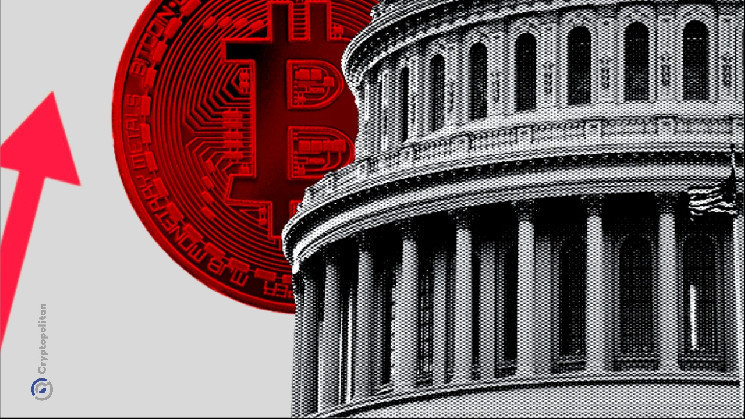1. Introduction to Montana’s Bitcoin Reserve Fund Proposal
In a bold move to explore the potential of digital assets, a proposal was put forth in the Montana House of Representatives to establish a state Bitcoin reserve fund. This initiative, known as the Inflation Protection Act, aimed to create a special revenue account under the state’s Board of Investments, focusing on investments in precious metals and digital assets. Introduced by Republican Representative Curtis Schomer on February 7, the bill sought to allocate up to $50 million from the state’s general fund into this new account. However, the bill faced significant opposition and was ultimately voted down by the full House on February 22. The final vote of 41 in favor and 59 against highlighted the controversial nature of the proposal, with both Republicans and Democrats expressing concerns about the risks and practicality of investing taxpayer money in cryptocurrencies.
2. The Proposed Fund and Its Investment Criteria
The proposed Inflation Protection Act outlined specific criteria for investments, notably targeting digital assets with a market capitalization of at least $750 billion. This requirement effectively narrowed the scope to Bitcoin, as it is the only digital asset meeting this threshold. The bill also provided for the legislature to control the funds, allowing for transfers into the special account and ensuring that revenues generated from investments would remain within the account. Proponents argued that this fund would serve as a strategic move to optimize state finances and protect against inflation. However, opponents were skeptical, labeling the initiative as speculative and risky. Republican Bill Mercer succinctly captured the opposition’s sentiment, stating, "I am not signing on to that stuff [cryptocurrency] and I can’t imagine a majority of your constituents want you to."
3. The Legislative Journey and Opposition
The bill’s journey through the legislative process was not without its challenges. Despite passing the House Business and Labor Committee, it faced significant pushback when it reached the full House for its second reading. The final vote revealed a bipartisan divide, with 16 Republicans and 59 total members opposing the measure, while only one Democrat voted in favor. This divide underscores the broader debate surrounding the role of cryptocurrencies in state finances and the risks associated with such investments. While supporters viewed the fund as an innovative way to safeguard state funds against inflation, critics argued that such a venture was too uncertain and potentially detrimental to Montana’s financial stability.
4. Montana’s Stance on Cryptocurrency: Existing and Pending Legislation
Montana’s approach to cryptocurrencies is multifaceted, with the state having already taken steps to regulate and support the industry. In 2023, Montana passed a law aimed at protecting crypto mining operations within its borders. This law prohibits discriminatory utility rates for crypto miners and prevents local governments from interfering with digital asset mining activities. Additionally, it defines digital assets as personal property and exempts cryptocurrency used as a method of payment from taxation. Currently, another piece of legislation, the Act Revising Cryptocurrency Laws, is under consideration. This bill seeks to further regulate the industry by prohibiting state participation in testing a central bank digital currency, legalizing tax payments in cryptocurrency, and protecting mining and staking activities. It also aims to exempt certain tokens from state security laws, providing a more favorable environment for cryptocurrency businesses.
5. Federal and Statewide Developments in Digital Asset Funds
The concept of a Bitcoin reserve fund is not unique to Montana; in fact, it reflects a growing trend at both the federal and state levels. The White House has indicated interest in exploring a national Bitcoin reserve, with David Sacks, often referred to as the White House "crypto czar," acknowledging the possibility during a press conference. According to Bitcoinlaws.com, 18 states have currently proposed or are considering similar cryptocurrency reserve funds. Among these, Utah stands out as a leader, with its Blockchain and Digital Innovation Amendments bill advancing through the House and moving to the Senate for its second reading. On the other hand, Montana joins a group of states that have rejected such proposals, including North Dakota, Pennsylvania, South Dakota, and Wyoming. Notably, Montana’s federal legislators are strong advocates for cryptocurrency, suggesting that while the state legislature may be cautious, there is significant support for the industry at the federal level.
6. Conclusion: The Significance and Broader Implications
The failure of Montana’s Bitcoin reserve fund proposal highlights the ongoing debate about the role of cryptocurrencies in state and federal finances. While proponents argue that such funds offer a forward-looking approach to wealth management and inflation protection, opponents raise valid concerns about the volatility and risks inherent in digital assets. As more states and the federal government consider similar initiatives, Montana’s experience serves as a microcosm of the broader challenges and opportunities in integrating cryptocurrencies into traditional financial systems. Whether the tide will turn in favor of such proposals remains to be seen, but one thing is clear: the exploration of digital assets as a financial strategy is a topic that will continue to garner attention and spark debate in the years to come.















